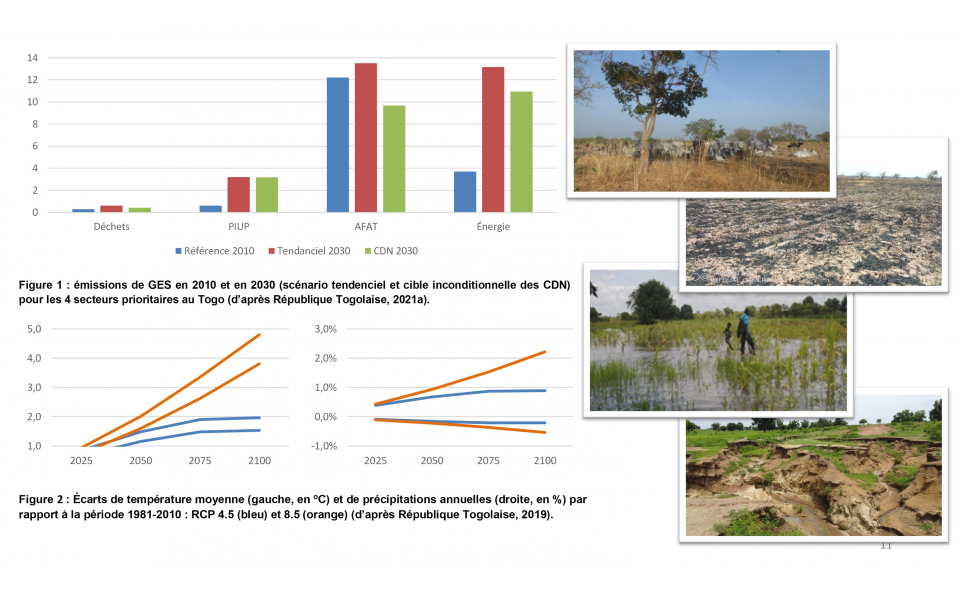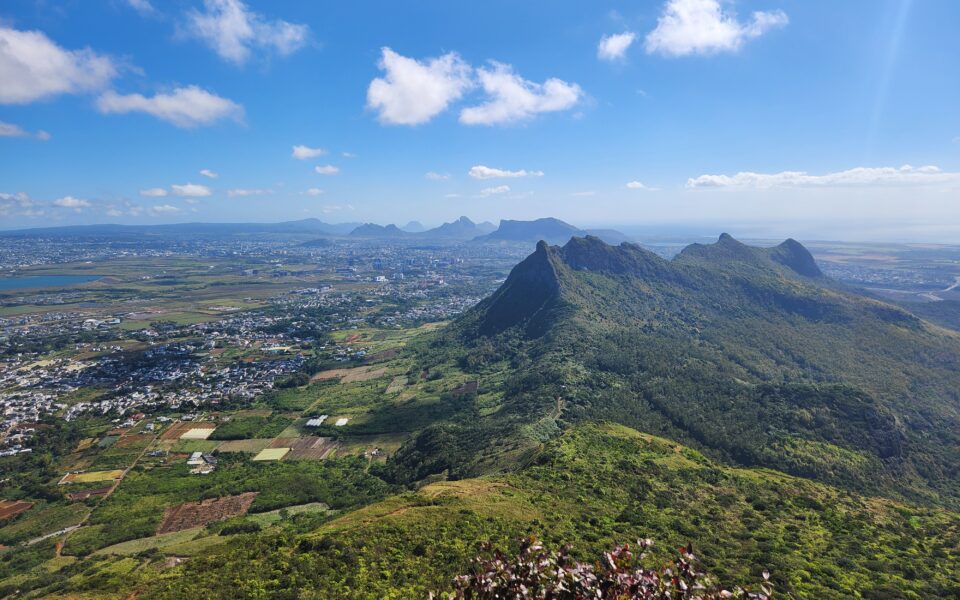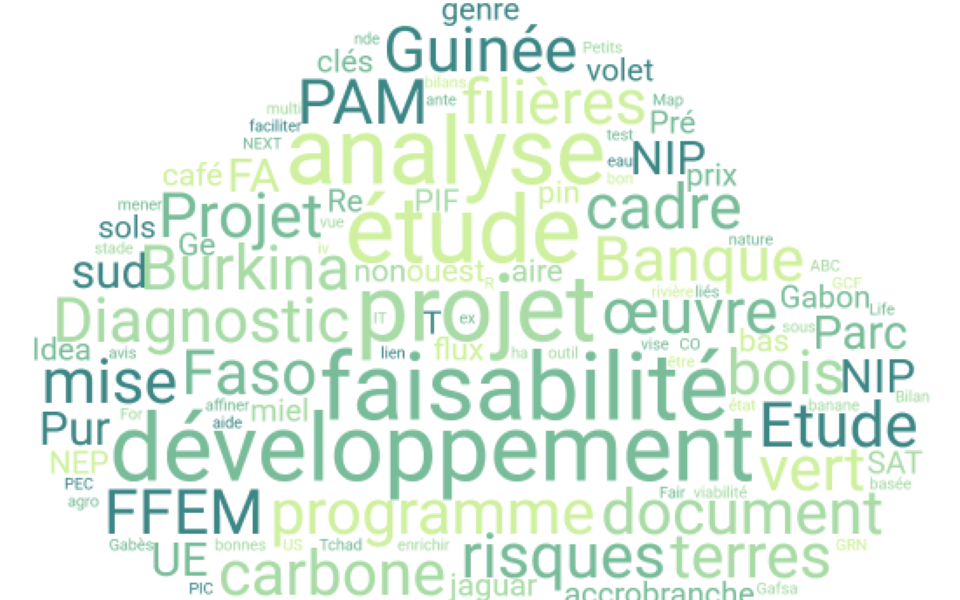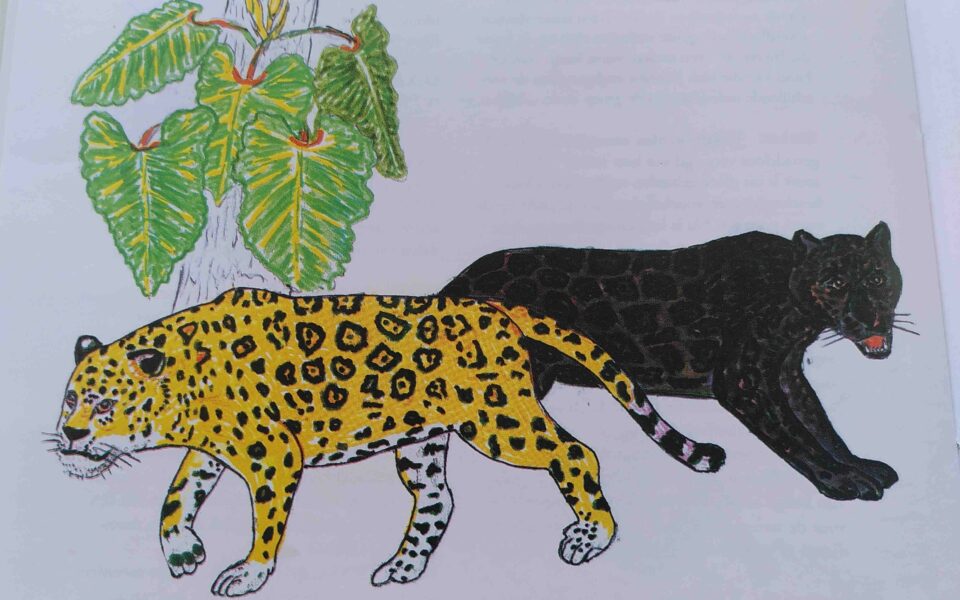News

23 March 2023
SalvaTerra supports the operationalization of NDCs in the planning of the agricultural and forestry sectors in Togo
Nationally Determined Contributions (NDCs) represent the commitment of signatory states to the Paris Agreement to reduce their greenhouse gas emissions and adapt to climate change. These commitments are fundamental: they set the objective to be achieved in the main sectors of the national economy. But their implementation is unfortunately often difficult.
Our study made it possible to diagnose a lack of articulation between the political level and the operational level: the programming, budgeting, execution and monitoring and evaluation (PPBESE) tools used on a daily basis by the agents of the ministries and administrations concerned do not integrate these objectives, with the consequence of a lack of visibility on how government action contributes or does not contribute to the achievement of NDCs.
Based on planning manuals and departmental operational procedures, we have updated the tools most used by PPBESE officials. These tools (planning matrices, annual work plans and budgets, etc.) have been updated to include a monitoring matrix for each of the NDC objectives.
A lire aussi...

27 Jan. 2026
La biomasse, levier d’économies circulaires dans l’océan Indien
📢 𝐄𝐭 𝐬𝐢 𝐝𝐞𝐬 𝐝𝐞́𝐜𝐡𝐞𝐭𝐬 𝐚𝐠𝐫𝐢𝐜𝐨𝐥𝐞𝐬, 𝐦𝐚𝐫𝐢𝐧𝐬 𝐨𝐮 𝐟𝐨𝐫𝐞𝐬𝐭𝐢𝐞𝐫𝐬 𝐜𝐚𝐜𝐡𝐚𝐢𝐞𝐧𝐭 𝐝𝐞𝐬 𝐜𝐡𝐚𝐢̂𝐧𝐞𝐬 𝐝𝐞 𝐯𝐚𝐥𝐞𝐮𝐫 𝐞𝐧𝐜𝐨𝐫𝐞 𝐬𝐨𝐮𝐬-𝐞𝐱𝐩𝐥𝐨𝐢𝐭𝐞́𝐞𝐬 ?
♻️ 𝐄𝐭 𝐬𝐢 𝐥’𝐞́𝐜𝐨𝐧𝐨𝐦𝐢𝐞 𝐜𝐢𝐫𝐜𝐮𝐥𝐚𝐢𝐫𝐞 𝐬’𝐢𝐧𝐯𝐞𝐧𝐭𝐚𝐢𝐭 𝐝’𝐚𝐛𝐨𝐫𝐝… 𝐬𝐮𝐫 𝐥𝐞 𝐭𝐞𝐫𝐫𝐚𝐢𝐧 ?
Dans le cadre de la feuille de route 2021–2026 de CAP Business Océan Indien, soutenue par l’AFD, SalvaTerra a mené fin 2025 une mission de terrain à Maurice, aux Seychelles et à Madagascar afin d’analyser le potentiel de plusieurs filières de valorisation de la biomasse à l’échelle régionale.

20 Jan. 2026
Rétrospective 2016-2025 – Episode 1/7 – De l’idée au projet finançable : Etudes de faisabilité et formulations des projets de développement et de gestion durable des ressources naturelles
Face à la multiplication des enjeux climatiques, environnementaux et socio-économiques, de nombreux acteurs portent aujourd’hui des idées de projets ambitieuses. Pourtant, passer d'une intention stratégique à un projet financé et mis en œuvre est loin d’être aisé.
Les études de faisabilité et les formulations de projets constituent une étape clé pour transformer une idée, un diagnostic territorial ou sectoriel, en un projet solide, cohérent et aligné avec les standards internationaux des bailleurs de fonds.

13 Jan. 2026
Etude de faisabilité du projet « Forêts, Jaguars et peuples du plateau des Guyanes »
Le projet « Forêts, Jaguars et peuples du plateau des Guyanes », porté par Panthera avec ACT et IEPÉ, vise à renforcer la protection de la biodiversité sur le plateau guyanais en s’appuyant sur le jaguar comme espèce emblématique. Inscrit dans la Feuille de route « Jaguar 2030 », il couvrira les quatre pays du plateau (Guyana, Suriname, Guyane, Brésil) pour un budget estimé à 6,5 M€, dont 2 M€ sollicités auprès du FFEM. Prévu sur quatre ans à partir de 2026, le projet répond aux pressions croissantes liées aux infrastructures, à l’exploitation minière et forestière et à l’expansion agricole, responsables de la fragmentation des habitats. Il prévoit d’améliorer les connaissances sur le jaguar, de renforcer les capacités des communautés locales et peuples autochtones, de développer des activités génératrices de revenus alternatives et de renforcer la coopération régionale.